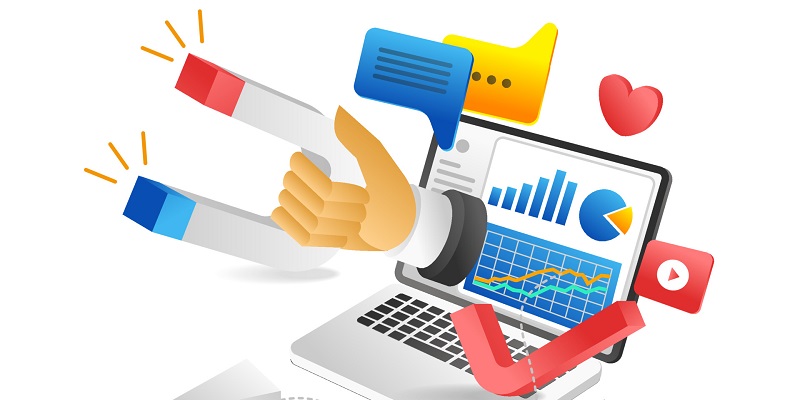Customer Relationship Management (CRM) software and marketing automation software are two essential tools that businesses use to manage customer interactions and marketing campaigns. Although these tools are similar, they have significant differences. CRM software is primarily geared towards sales, while marketing automation software is focused on marketing campaigns. This article will examine the differences between these two types of software and discuss how integrating them can benefit your business.
The difference between CRM and Marketing Automation Software is that CRM software is primarily used for managing customer interactions and relationships, while Marketing Automation software focuses on automating marketing tasks such as lead generation, email marketing, and targeted advertising. CRM software helps companies manage customer data, communication, and interactions with the aim of improving customer satisfaction and loyalty. Marketing Automation software, on the other hand, helps businesses streamline their marketing processes and campaigns, by automating repetitive tasks, and targeting the right audience with personalized content.
CRM software is mainly used for sales purposes, while marketing automation software is used primarily for marketing campaigns. The CRM software’s main focus is to help businesses manage their sales pipeline, track customer interactions, streamline communication, and simplify customer data management. In contrast, marketing automation software is focused on automating key marketing tasks, such as lead generation and nurturing, segmentation, customer behavior analysis, and customer engagement.
Differences between CRM and Marketing Automation
One of the primary differences between CRM and marketing automation software is their respective roles in the sales and marketing process. CRM is mostly used as a sales tool to manage workflows, close deals, and track customer interactions with sales reps. At the same time, marketing automation is primarily used as a lead generation and nurturing tool to attract and nurture leads throughout the buyer’s journey. By effectively combining these two types of software, it is possible to create a more seamless sales and marketing flow in the business.
Integrating your CRM and marketing automation software is a powerful way to deliver personalized messaging from the beginning. By analyzing customer data and behaviors at different touchpoints along the customer journey, businesses can create a 360-degree view of the customer. This enables businesses to tailor their messaging to the specific needs, preferences, and behaviors of each customer, resulting in higher engagement and conversion rates.
Benefits of Integrating CRM and Marketing Automation Software
Integrating your CRM and marketing automation software tools can improve your business’s capabilities and the customer experience. By combining the two tools, you can create a complete view of the customer across the customer journey, from prospect to sale. This enhances your ability to gain insights into customer needs and preferences, which can be used to deliver more targeted messaging, improve customer engagement, and provide a better customer experience.
The function of CRM is to manage and analyze customer interactions and data throughout the customer lifecycle, with the goal of improving business relationships with customers, assisting in customer retention and driving sales growth.
CRM software is designed to store information about customer history, such as how long they have been a customer, their purchase records, and notes on phone conversations. This helps companies personalize their interactions with customers, resulting in improved customer retention and loyalty. With a CRM system, businesses can analyze customer behavior, their interactions with your brand, and tailor their sales approach to their specific needs.
Usability of CRM
CRM software is a tool that almost anyone in an organization can use, and it stores data from all departments in one easy-to-access location. The intelligence gleaned from a CRM system enables businesses to share relevant, real-time data between departments, thus improving communication and customer understanding. This ultimately leads to a more seamless customer experience across different touchpoints along the customer journey.
The function of marketing automation is to streamline and automate marketing processes and tasks, such as lead generation, lead nurturing, email marketing, social media management, and analytics. It helps businesses save time and resources by allowing them to create and manage targeted campaigns, personalized content, and automated workflows. Marketing automation also provides valuable insights into customer behavior that businesses can use to improve their marketing strategies.
Marketing automation software is a system used to streamline, analyze, and automate key marketing tasks and workflows. This includes lead generation, segmentation, list management, email and social media automation, and customer tracking. By automating these tasks, businesses can scale their marketing efforts, save time and resources, enhance their ability to segment and target an audience, and improve the effectiveness of their campaigns.
Best practices for integration
To get the best results from integrating your CRM and marketing automation software, there are some best practices to follow. Use lead scoring to determine the quality of your leads and segment your customer base according to predefined criteria. By eliminating duplicate customer data and taking a centralized single record approach, you can ensure consistent marketing and sales communication across your organization. Finally, be prepared to adjust practices and pivot as necessary in response to new data and insights.
Integrating your CRM and marketing automation software can improve your business’s capabilities and customer experience. By combining these two software tools, businesses can create a complete view of the customer from prospect to sale, deliver more targeted messaging, streamline workflows and communication, and improve the effectiveness of sales and marketing efforts. By following best practices and continually adjusting your approach based on results, businesses can successfully integrate these two essential software tools to achieve higher customer engagement, better lead conversion, and increased profitability.

